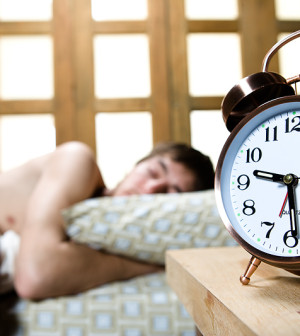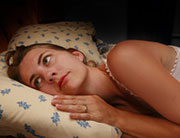- Double Mastectomy May Offer No Survival Benefit to Women With Breast Cancer
- Toxic Lead Found in Cinnamon Product, FDA Says
- Certain Abbott Blood Sugar Monitors May Give Incorrect Readings
- Athletes Can Expect High Ozone, Pollen Counts for Paris Olympics
- Fake Oxycontin Pills Widespread and Potentially Deadly: Report
- Shingles Vaccine Could Lower Dementia Risk
- Your Odds for Accidental Gun Death Rise Greatly in Certain States
- Kids From Poorer Families Less Likely to Survive Cancer
- Tough Workouts Won’t Trigger Cardiac Arrest in Folks With Long QT Syndrome
- At-Home Colon Cancer Test Can Save Lives
Daylight Saving Time’s Arrival May Disrupt Your Sleep


Sleep problems may surface for some after clocks move forward an hour Sunday morning for Daylight Saving Time because many people have difficulty changing their body clocks, a sleep expert says.
People’s internal clocks tend to be programmed for longer than a 24-hour day and run a bit behind the time shown on clocks, said Dr. Steven Feinsilver, director of the Center for Sleep Medicine at the Icahn School of Medicine at Mount Sinai in New York City.
This means it’s “generally easier to stay up an hour later than to sleep an hour earlier, which is why the [Daylight Saving Time] change is a little more of a challenge than the end of [Daylight Saving Time] in the fall,” Feinsilver said in a school news release.
Feinsilver outlined some ways to get a good night’s sleep. First, he said, it’s important to maintain a consistent wake time, which should vary by no more than an hour on any day, including weekends.
Sleeping and sex are the only things you should be doing in your bedroom, Feinsilver said. Reading might be OK, but having a TV in your bedroom is a bad idea. Spending eight hours or less in bed will lead to more solid periods of sleep, he said.
Exercise can help you sleep, but not if you do it in the hours just before going to bed. Don’t eat a big meal just before bedtime, but don’t go to bed hungry either, Feinsilver said. Avoid caffeine and alcohol for several hours before bedtime.
It might be a good idea to establish a “worry time” at least an hour before bedtime to write down all your worries or what you need to do the next day, he said. You can then put the list aside and relax before you go to bed.
Feinsilver also said everyone has an occasional bad night of sleep and the effects of one such night aren’t serious.
More information
The U.S. Centers for Disease Control and Prevention has more about sleep and sleep disorders.
Source: HealthDay
Copyright © 2024 HealthDay. All rights reserved.










